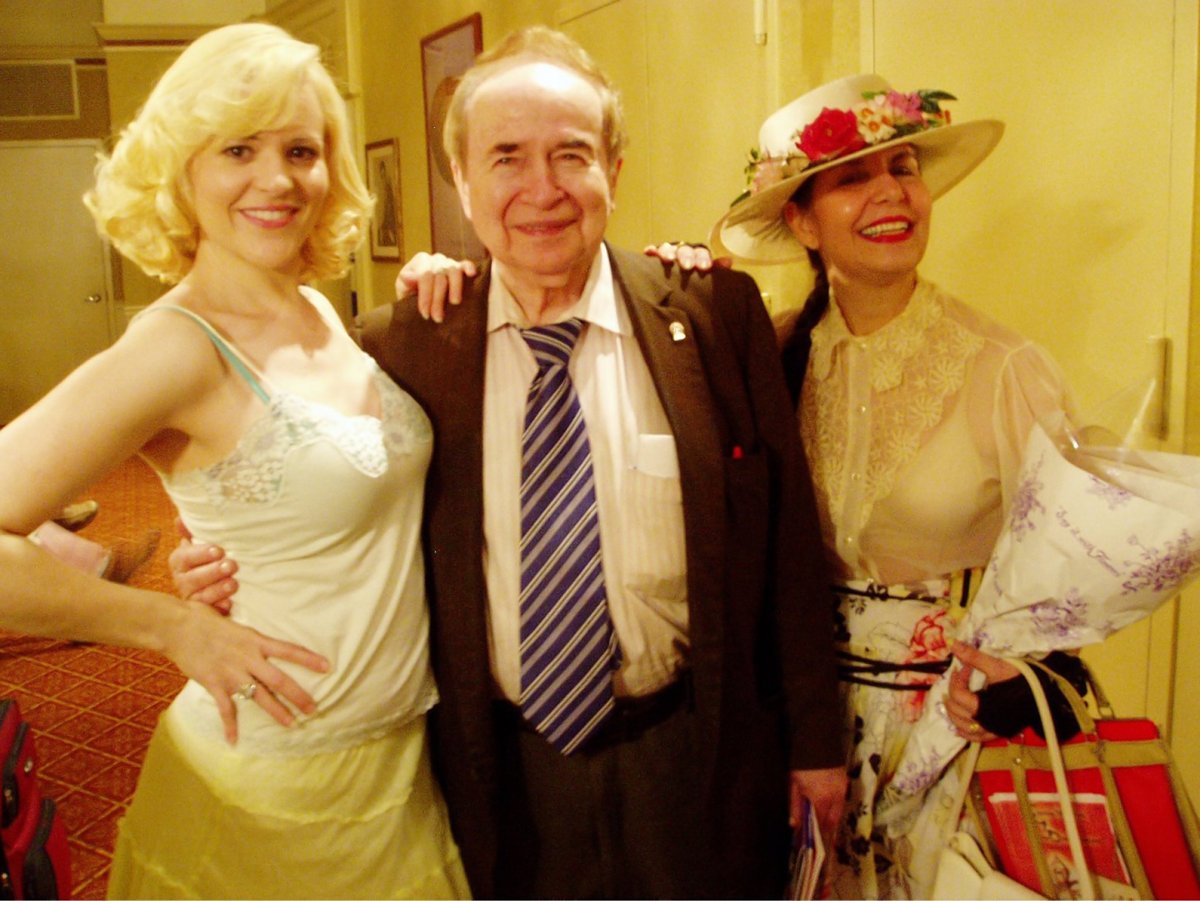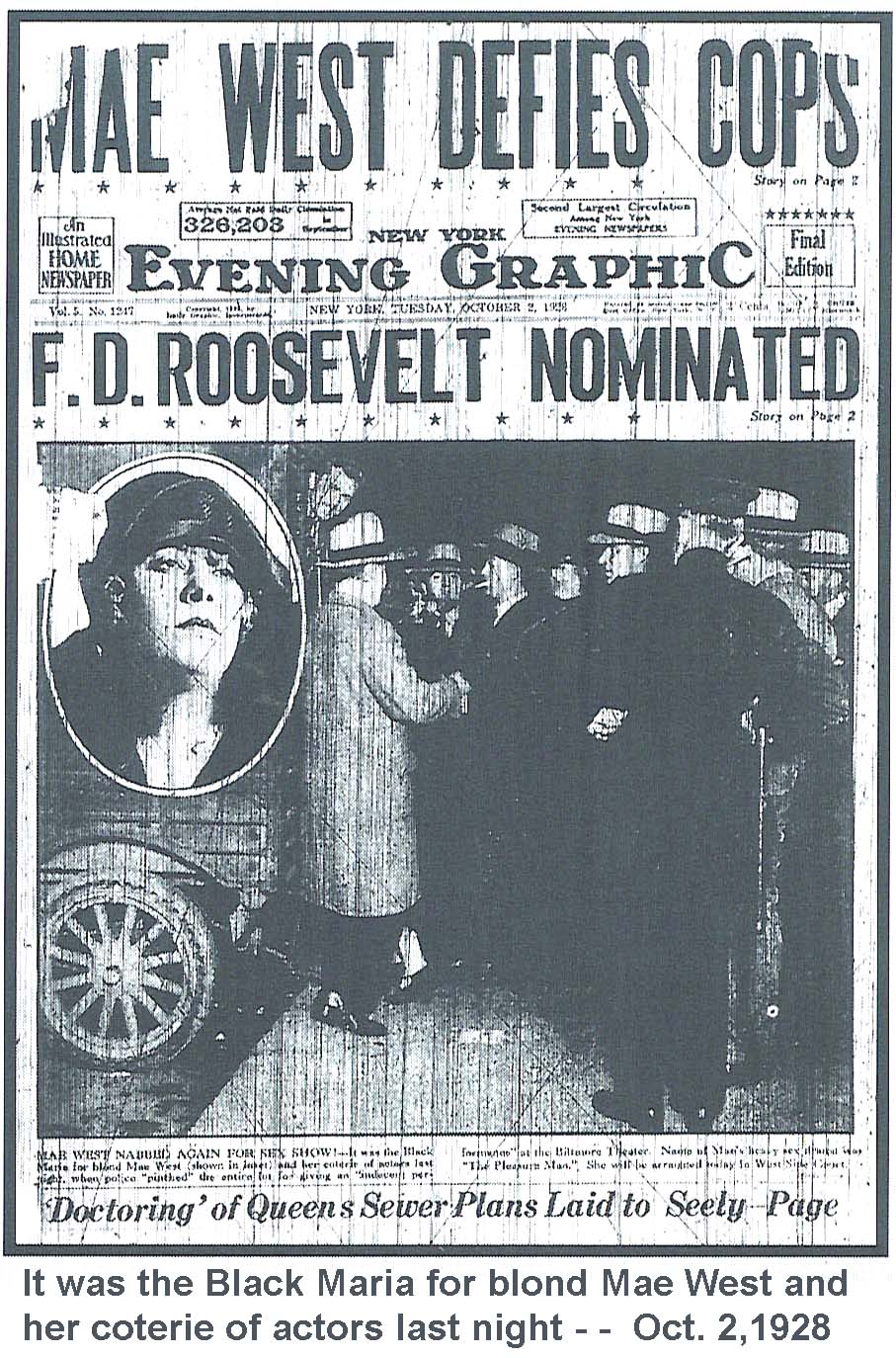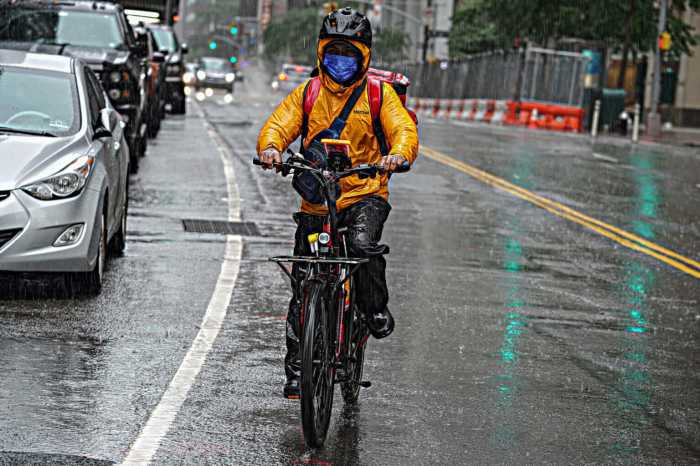
BY MICHAEL OSSORGUINE | Mae West is more renowned for her movies and her bawdy double entendres than her legal troubles at the old Jefferson Market Library. But it is a little-known fact that she was tried and convicted in the Village courthouse in 1927, when today’s Jefferson Market Garden was a women’s prison.
Over the years, playwright and Mae West enthusiast LindaAnn Loschiavo fought to have this part of West’s story remembered in the historic building, where she is hosting a birthday celebration for the silver-screen actress on Aug. 17.
For West’s annual birthday remembrance, Loschiavo will be hosting 75 people — the capacity of the space she will use — for a culturally enriching experience of 1920s New York.
While some people come for the social atmosphere, Loschiavo often turns the event into an impromptu history lesson on West, and the other pioneering actresses who made a name for themselves in 20th-century New York, as well as Hollywood. Loschiavo said she would definitely speak about Texas Guinan, who was one of the first female movie stars, and was present at West’s trial.
“People come for the entertainment and leave finding they know so much more about cultural history,” Loschiavo said.
The W. Ninth St. historian and scribe also penned the original play “Courting Mae West” in 2003, which was a comedy meant to accurately portray the bold and avant-garde actor in the 1920s and ’30s, when she countered bad reviews by generating even more controversy. In order to salvage her career, West wrote and performed in back-to-back Broadway box office hits while intentionally being arrested for allowing openly gay actors to perform in her plays.
At a time when actors’ labor unions, such as Actors Equity, which was established in New York City in 1913, refused to represent gay thespians, such actions challenged the social order in admittedly “dangerous” ways.

“Courting Mae West” follows the actor’s arrest following the performance of “Sex,” a play that was branded as lewd material in a retroactive law, and resulted in West spending nine days in prison in 1927.
“She was an early freedom fighter,” Loschiavo said. She noted that, thanks to her efforts, there is now a Mae West Room in the turreted library building, at Sixth Ave. and W. 10th St.
West went on to dazzle audiences in countless motion pictures, such as “I’m No Angel,” which helped save Paramount Pictures from bankruptcy.
Other than hearing speakers, attendees at the Mae West party will be able to view photos of New York City taken in the early 20th century, including one of Seventh Ave. in 1907, when it was still a dirt road — sometimes used for horse racing — with a young Mae West walking across the unpaved thoroughfare.
According to Loschiavo, some participants have also received awards in past years, including a complimentary limousine ride.
The event will begin at 6 p.m., and last for two hours. For more information about Mae West’s adventures in New York City, go to Loschiavo’s blog at https://maewest.blogspot.com.



























